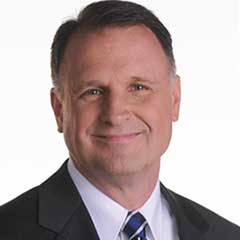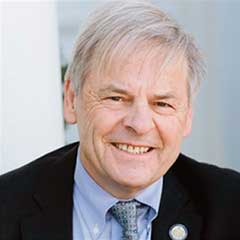Ladies and Gentlemen of the House,
We gather here today amid a great change in the constitution of this body. Nearly a quarter of the men and women who sat here on my side of the aisle just one year ago are gone—swept away at the polls by the sovereign voice of the people in their ballots on November 7.
Such change has become a constant in our lives in a now-continental society given to turbo-capitalism and the continual revolution of science. Still, some realities are impervious to the emotions agitated by the media or the ideologies by which our political parties contend for the right to govern. Still our budget must be balanced. Still we have problems to address that defy simple remedy. Still we will have important issues to debate—and to decide. And, still we need to make our way to a discourse and decisions worthy of the complex Commonwealth we assemble today to serve.
***
Two generations ago—in 1955—Wm F. Buckley Jr. defined a Conservative as “someone who stands athwart history, yelling Stop, at a time when no one is inclined to do so.” Probably all 100 of us here today can agree on one thing at least, which is that History did not stop, and much of the social and political order of our parents’ generation has been swept away—largely by technologies and pharmaceuticals that may prove as destructive of human nature as they are alluring to human appetites.
How can History be ‘stopped’—or even slowed—when science dissolves even whole societies’ let alone the individual’s ability to maintain traditional norms—or our fabled American sense of self-government, and independence of judgment? A litany of thinkers has attempted to answer those questions—among the most notable being Aldous Huxley, author of Brave New World; C.S. Lewis, author of The Abolition of Man; George Orwell, with whose 1984 or Animal Farm many of us will be familiar.
My own litany of prophetic voices about the fragility of ordered liberty and the sundry threats to human dignity begins with Plato, who well warns that democracies invariably tend—and end—in tyranny. The Framers of our Constitution understood this, and so bequeathed us republican—emphatically small r—forms to channel democratic passions.
More recently, Jacob Burckhardt forewarned in the 1890s that the challenges of modern cities and economies would tempt the masses to choose “terrible simplifiers” to impose a single, totalitarian remedy to the new problems of “modern life”…
Ortega in 1932 warned of “the revolt of the masses” against all forms of superior achievement; Tocqueville a century earlier wondered if we Americans, in our preoccupation with equality, would at last subvert liberty through a “mass conformism” that would instantiate a “soft despotism” every bit—and more—tyrannical than the “hard” dictatorships of armed ideologies.
And Christopher Lasch, who in 1979 suggested that the social changes Tocqueville, Burckhardt, and others noticed in the 19th Century led to “an historical period characterized by…[an increasing number of individuals] in a state of marked narcissism with all its pathological symptoms.”
The reference is to our period…to us.
It will come as no surprise to this audience that I define myself as a Conservative. But what, I constantly ask myself, can the Conservative hope to conserve—to do—when Constant Change is the dynamic engine of society, economy, and polity?
My answer is, the Conservative can bear witness to truths that have been tested by time and transmitted by tradition. For example, no matter how high the federal debt becomes, one and one still equals two, and no people can thrive who spend beyond their means. The day may come when voters break entirely with such truths, but still one can bear witness.
This approach is what Edmund Burke described as “the cake of custom.” Custom can be broken, or abandoned, but even then, there remains one creed—one fragment of custom, as it were—that is impervious and equal to all change. That custom is charity.
Indulge a veteran of two decades in these chambers to invite all of us, amid the “sound and fury” that will invariably occur in coming weeks, to remember that, in the end, Shakespeare found it all to signify only “nothing.” “Nothing,” that is, compared to the principles and the experiences that endure.
As an example of this, the oldest of all the traditions extolled by the Conservative, I deeply regret that we will not any longer be practicing one of the most ancient of all customs of the House of Delegates. Of course I bow to the decision of our constituted authority, but in doing so I am compelled to bear witness to what I believe is the Conservative’s obligatory response to the “Brave New World” upon which we are entered.
And so, to Delegate Ken Plum of the 36th District I say, Sir, no matter how now I must address you in this chamber, and though we will continue to vote differently on a wide array of issues, you will remain for me The Gentleman from Fairfax. The same is true for everyone in every seat in this body, for each of you has been elected to represent the constituents of your district on the terms by which you campaigned for their votes. Congratulations, and Welcome.
May we differ, but never demean; may we listen as well as clamor; and may many of us emerge in mid-March—as Aristotle would have us do—in a kind of friendship that transcends solely partisan obligations and opens us to the cooperation required for us to serve together our common weal.


